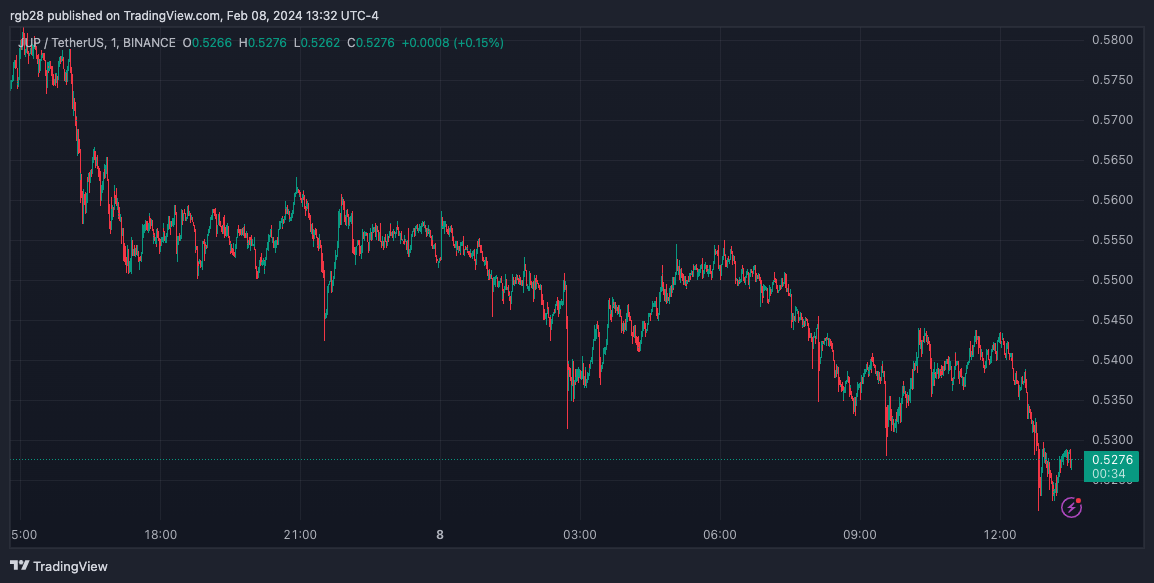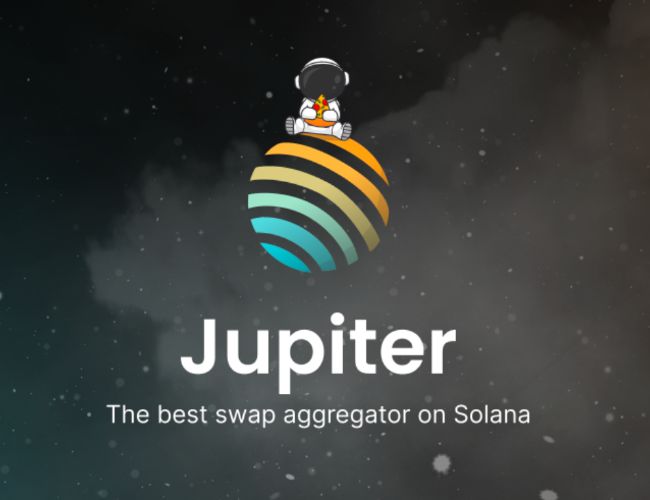Solana-based decentralized exchange (DEX) aggregator Jupiter recently announced the possible launch of three new tokens through its launchpad. The announcement follows the launch of its $JUP native token via the LFG launchpad last week.
Solana’s Community Holds The Power?
After the scheduled closing of the $JUP launch pool, Jupiter Exchange and its founder took X (formerly known as Twitter) to reveal the next steps for the Solana-based project.
Jupiter: Let's Go!
Hello space catdets! Over the last few months, we built a robust community of catdets with a common vision, scaled up our infrastructure to handle many levels of volume, tested a lot of things together, and overcame a hell lot of adversity together.
And now,…
— meow 🥧 (@weremeow) February 7, 2024
As the pseudonym founder Meow stated, the LFG launchpad is Jupiter’s “initiative to grow the pie by helping great projects get the awareness, community, and users to thrive in the long term.” As a result, the founder presented three “OG” Solana projects to the community that could be part of the next launchpad.
The first candidate is Sanctum, a liquid staking service with “experience building the first SPL program used by stake pools, and liquidity sources like unstake.it.” The next project, Sharky, is an expanding $NFT collateralization platform on Solana that allows “$NFT holders to borrow and lend against NFTS to acquire leverage or earn yields.”
Closing the list, the cross-chain infrastructure provider deBridge is presented as a project that allows users to trade assets across chains in seconds without the need for wrapped assets or liquidity pools.
Jupiter’s founder highlighted that the community would have the final say in any project’s participation on the launchpad. Since LFG is a community initiative where Jupiter’s team “should play no role,” it’s up to the Solana users to discuss and decide if any projects are suitable for launch in the LFG platform.
Additionally, the post announced that the introduction process of the projects to the community would take part over the next two weeks through different channels, including special ones for each project and a summary on X. For the future, Jupiter’s team will provide application channels for other projects interested in participating.
Next Steps For The Project
On February 7, the project confirmed in an update that the launch pool was closing after seven days, as previously scheduled. In the process, 90 million $JUP tokens were withdrawn and moved to a cold multi-sig wallet, effectively taking them out of circulation.
The project also announced that the launch pool was left with 65.5 million $USDC, which would serve as a liquidity backstop for $JUP.
However, the $USDC will be removed over the next couple of months in $10 million batches to allow the $JUP token to regain price discovery while simultaneously “assuring all participants that the team is committed to a long-term gradual withdrawal of $USDC liquidity.”
While all the $JUP has been removed, we are leaving ~63.5M of $USDC in the launchpool to serve as liquidity backstop for $JUP. The $USDC will be removed over the next 2-3 months. pic.twitter.com/2AQ7zIKwJO
— Jupiter 🪐 (@JupiterExchange) February 8, 2024
The founder’s post shared Jupiter’s intention to initiate a decentralized anonymous organization (DAO) this month and “incrementally evolve it into the most dynamic, most productive and proactive DAO in space.”
Initially, the $JUP DAO would focus on evaluating and approving launchpad projects, ratifying budgets for working groups, approving grants, and releasing budgets for ongoing community and ecosystem initiatives.
The team’s update specified the steps to encourage the community’s participation and to fund it with the capital to pursue important initiatives. The steps include distributing 75% of future LFG launchpad fees to the governance participants, “100M in $JUP earned from the LFG launchpad for voting incentives, and 6.15M in operational funds from $JUP Launch.”

Jupiter is trading at $0.5276 in the daily chart. Source: JUPUSDT on Tradingview.com
 newsbtc.com
newsbtc.com
